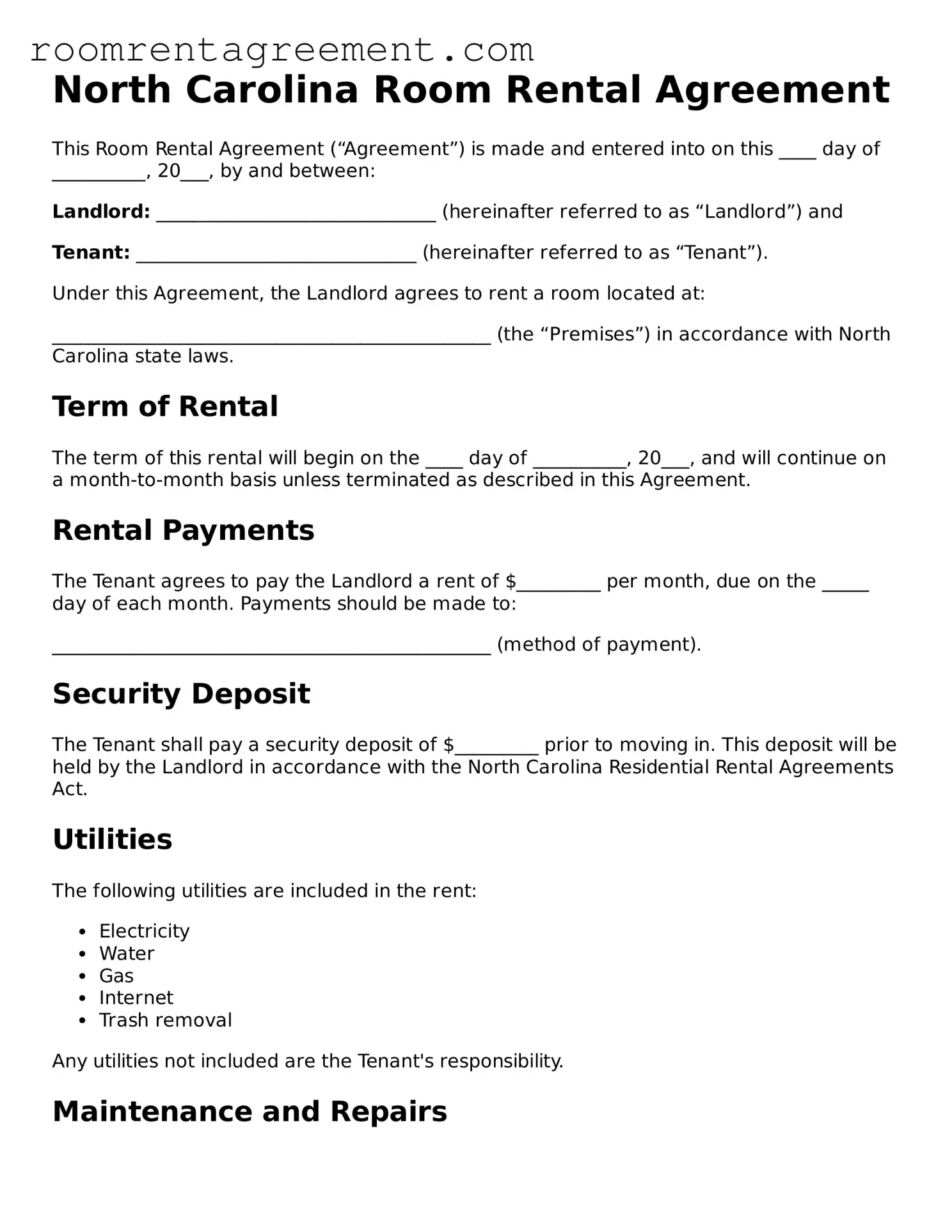More About North Carolina Room Rental Agreement
-
What is a North Carolina Room Rental Agreement?
A North Carolina Room Rental Agreement is a legal document that outlines the terms and conditions under which a room is rented. This agreement protects both the landlord and the tenant by clearly defining responsibilities, payment details, and other essential aspects of the rental arrangement.
-
Who needs a Room Rental Agreement?
Anyone renting a room in North Carolina should have a Room Rental Agreement. This includes homeowners renting out a spare room, landlords with multiple properties, or individuals renting a room in a shared living situation. Having a written agreement helps to avoid misunderstandings and disputes later on.
-
What key elements should be included in the agreement?
A comprehensive Room Rental Agreement should include:
- The names of the landlord and tenant
- The rental property's address
- The rental amount and payment schedule
- Duration of the rental period
- Security deposit details
- Rules regarding pets, smoking, and guests
- Termination and renewal conditions
-
How long does the agreement last?
The duration of the Room Rental Agreement can vary. It may be a fixed term, such as six months or one year, or it could be month-to-month. It’s essential to specify the length of the rental period in the agreement to ensure both parties understand their commitments.
-
Can the agreement be modified after signing?
Yes, the Room Rental Agreement can be modified, but both parties must agree to the changes. It’s best to put any modifications in writing and have both the landlord and tenant sign the updated agreement. This helps maintain clarity and protects both parties’ interests.
-
What happens if a tenant fails to pay rent?
If a tenant fails to pay rent, the landlord may have the right to take specific actions as outlined in the agreement. This could include charging late fees, initiating eviction proceedings, or terminating the rental agreement. It’s crucial for both parties to understand the consequences of non-payment before entering into the agreement.
-
Is it necessary to have the agreement notarized?
In North Carolina, it is not necessary to have a Room Rental Agreement notarized for it to be legally binding. However, having it notarized can provide an extra layer of protection and authenticity. It may also be beneficial in case of disputes, as it serves as evidence that both parties agreed to the terms.
